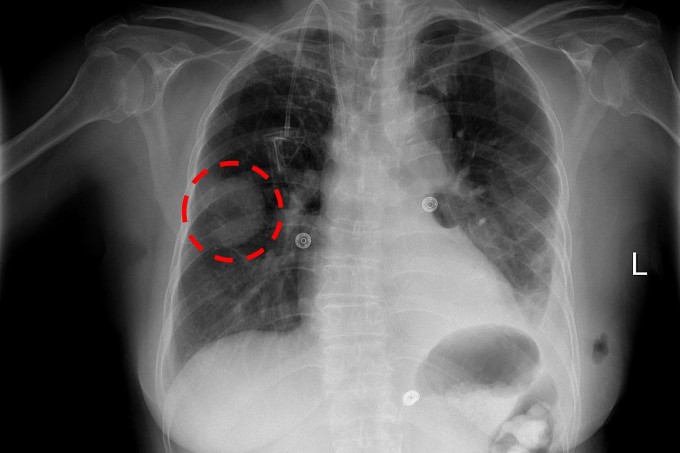A team of radiologists will assist the National Institute of Health Clinical Center’s chest radiograph collection to improve the algorithms used to identify pneumonia.
Pneumonia is one of the top causes of death in the United States. It accounted for more than 500,000 visits to emergency departments and more than 50,000 deaths in 2015.
However, diagnosing pneumonia on a chest radiograph is complex, involving highly trained specialists and confirmation through clinical history, vital signs and laboratory examinations. Diagnosis is also complicated in that while the illness manifests as an area of increased opacity, other lung conditions, such as bleeding, pulmonary edema and lung cancer, also appear as increased opacity.
Eighteen board certified radiologists from 16 academic institutions agreed to serve as readers of the 112,000-image public NIH CXR8 data set to improve its accuracy by removing overlapping terms and improving clinical relevance. They also annotated possible pneumonia by providing bounding boxes that localize where they thought pneumonia-like opacities were seen.
“Our goal was to provide an annotated dataset to help develop machine learning algorithms that can assist in diagnosis of pneumonia, especially for areas of the world lacking the requisite expertise,” the group stated in a report on their work.

The resulting augmented dataset is comprised of 30,000 frontal view chest radiographs.
The dataset, a collaboration of the Radiological Society of North America (RSNA) and the Society of Thoracic Radiology (STR), is available to the public.
“To our knowledge, no such effort has been attempted on such a large scale in radiology with expert radiologists from so many institutions and may provide a new framework for creating machine learning datasets in medicine,” the authors wrote.
The dataset is available in both an original unadjudicated version and an adjudicated version. The adjudicated version was used for the RSNA 2018 pneumonia detection machine learning challenge.
The initiative was reported in the journal Radiology: Artificial Intelligence.
The team hopes to recruit more volunteers for additional study. “Future work will be to demonstrate whether providing these more localized annotated datasets with different probabilities of diseases will in fact allow for better (more informative) or more accurate machine learning algorithms,” the authors concluded.
